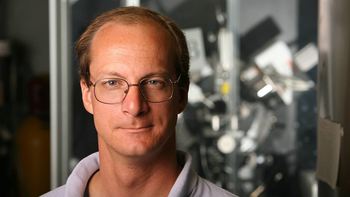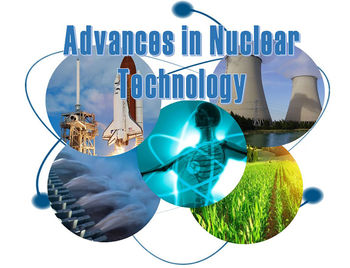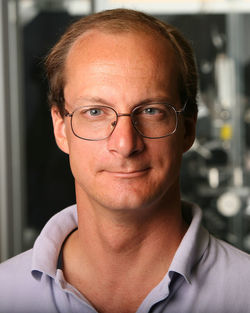
Accidents involving nuclear materials have been few and far between, yet their stories have remained etched in history, leading to misinformation and disagreements, especially among policymakers and the public, about their use. The good news is that researchers have learned from these incidents and are leading the way toward the next-generation of nuclear power and life-sustaining technologies.

In this four-part series, participants will learn about the many ways nuclear is being used to generate power, preserve human health, and support universal discoveries. Speakers will delve into topics surrounding research and development and some of the hard questions about environmental and intergenerational justice, including:
- Is nuclear power the only means for reducing carbon emissions quickly enough to prevent catastrophic climate change?
- How do we sort through fact and fiction, ethical and moral imperatives, and social and economic consequences when making policy decisions?
- Beyond power, how is nuclear science saving lives, solving mysteries from our past, and building a future for the next-generation of scientists, leaders, and decision-makers?
Please join ND Energy on the following consecutive Wednesdays, February 10, 17, 24 and March 3, at 7:00 p.m. (EST) for a series of virtual discussions that will enlighten participants on the many ways nuclear technology is used to sustain our future.

Registration is required by 5:00 p.m. (EST) the day of the talk to receive a Zoom link to join. This series is open to the Notre Dame community and general public.

February 10 at 7:00 p.m.
Advances in Nuclear Technology Part One: "Fact, Fiction, and the Future"
by Peter C. Burns, Henry J. Massman Professor of Civil and Environmental Engineering and Earth Sciences and director of ND Energy, University of Notre Dame
The earth’s temperature is rising at an alarming rate and while solar, wind, and other green technologies are making great advancements, they cannot keep up with the growing energy demand worldwide. Economies and livelihoods of billions around the world depend on fossil fuel. It is time to take a closer look at the contribution new nuclear power technologies can make to speeding up electricity production with zero carbon emissions. Burns will review the history of nuclear power plant accidents of the past and introduce the new, safer and more affordable technologies of the Gen III+ and IV reactors. He will address multiple topics of concern such as waste disposal and security. Burns is a leading expert in nuclear chemistry and materials, specializing in waste disposal and the mobility of actinides and heavy metals in the environment.
Burns has focused most of his research over the past decade on the solid-state chemistry, mineralogy, and environmental chemistry of uranium, as well as the transuranic elements neptunium and plutonium. The Burns lab uses many diffraction, scattering, and spectroscopic techniques to study actinides at various length scales. Burns is the Henry J. Massman Professor of Civil and Environmental Engineering and Earth Sciences and concurrent professor in the Department of Chemistry and Biochemistry. He was named director of the Center for Sustainable Energy at Notre Dame (ND Energy) in July 2014. Burns also serves as director of the NNSA Actinide Center of Excellence (ACE) tasked with prioritizing research that is important for Stockpile Stewardship — the certification that the nation’s nuclear weapons are secure and operational. He earned his Ph.D. at the University of Manitoba in 1994.
Future Sessions
February 17: Advances in Nuclear Technology Part Two: "A Moral Imperative" by Don Howard, professor of Philosophy, University of Notre Dame
February 24: Advances in Nuclear Technology Part Three: "A Case Study in Puerto Rico" by panelists Jesus Nunez, chief executive officer, Nuclear Alternative Project (NAP); Valerie Lugo, chief operations officer, NAP; and Ramón Martinez, chief nuclear officer, NAP
March 3: Advances in Nuclear Technology Part Four: "Beyond the Nuclear Power Plant" by panelists Captain Mark Prokopius, professor of Naval Science, University of Notre Dame; and J. David Robertson, professor of Chemistry and director of MU Research Reactor (MURR), University of Missouri
For questions or more information, please contact Anne Berges Pillai at apillai@nd.edu.
Sponsored by ND Energy and the Notre Dame Puerto Rican Student Association
Originally published at energy.nd.edu.